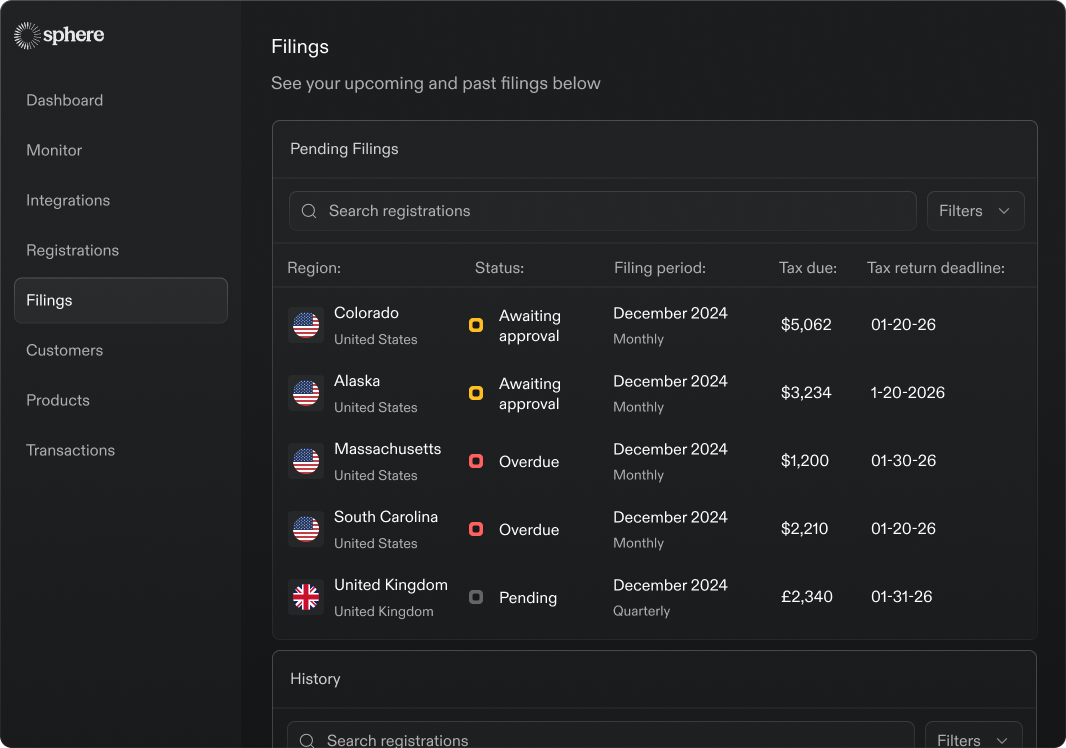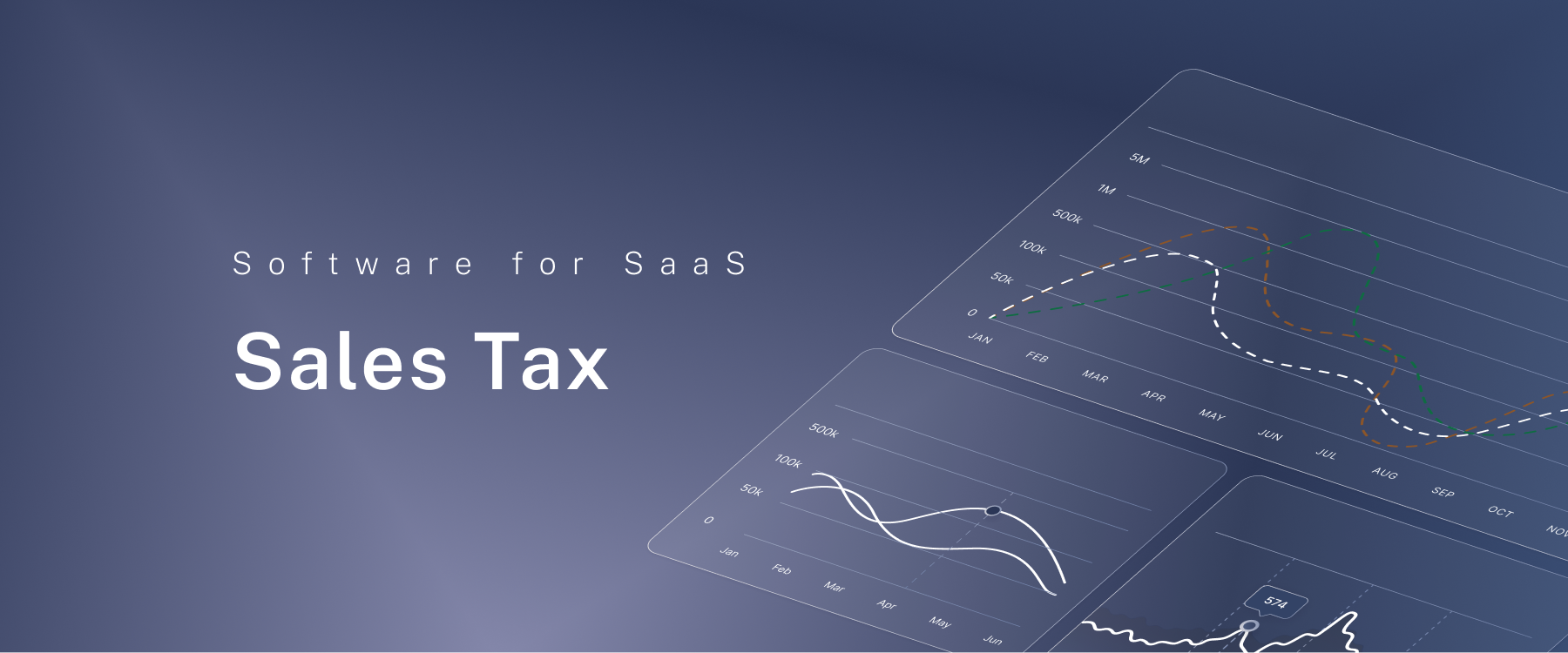.png)
Business owners can sometimes find themselves in situations where they accidentally collected too much sales and use tax or even collected sales tax when they weren’t supposed to. Such as:
- Accidentally setting up your payment processor to collect sales tax before you’ve registered and become sales tax compliant with a state
- Collecting sales tax on an item that is non-taxable or qualifies for a tax exemption
- Collecting more sales tax than required (i.e. collecting 9% when the tax was only 8%)
What do you do in this situation?
Is it Illegal not to Refund Sales Tax?
Sales tax is a “pass through” tax. That just means that a business collects it from a buyer but then hands it over to the state (or sometimes local) government. Technically, at no time do sales tax funds belong to the business.
Customer protection laws in most states rule that if a customer requests a refund on an original purchase, the sales tax should also be refunded.
States take it seriously when a business represents that they are collecting tax on the state’s behalf, but instead keep that tax in their pockets. In fact, this is one of few crimes involving sales tax that can lead to criminal action and even jail time.
How laws differ by state and transaction timing
States vary in their laws when it comes to refunding sales tax. Some states mandate full tax refunds within a set return period (usually 90 days, but in some states up to 180 days.)
Rules vary on whether the customer return can be full, partial, or whether you can keep the sales tax that applies to an item’s restocking fee. Since a restocking fee is considered a service, and thus non-taxable in nearly all US states, it’s generally not subject to sales tax, and the merchant shouldn’t keep the sales tax associated with the restocking fee. (See: “Differences between partial refunds, restocking fees, and full returns.”)
Sales Tax Refund Rules by Jurisdiction
Time limits and documentation requirements
Refunding sales tax is only the first part of the equation. You must also report any sales tax refunded on your periodic sales tax returns to the state. Fortunately, this generally means you can claim a credit or even get your own sales tax refund on tax that you returned to a customer.
Example: You sold a customer a SaaS package for $1,000, which included $80 in sales tax. As a monthly sales tax filer, you reported and remitted the original amount of $80 in sales tax that you collected to the state at the end of the month.
However, your business has a generous 60-day refund policy, and the customer decides to claim their refund after you’ve already remitted the tax. In this case, you’re generally required to refund all of the sales tax collected to the customer. But then, on your next sales tax filing, you can claim a credit for the $80 in sales tax that you returned.
<div class="disclaimer"> Note: some states don’t allow you to claim a credit on a future return, and instead require that you file an amended return.</div>
It's vital to keep close track of all refunds. If your business is ever flagged for an audit, state department of revenue agents can go through your transactions line by line to ensure you are in strict compliance with sales tax refunds. Always keep receipts and transaction logs to cover your bases.
Differences between partial refunds, restocking fees, and full returns
You should check with your individual nexus states’ rules and regulations on sales tax refunds, because they can vary widely.
Partial Sales Tax Refund Example:
For $1000, you sold a customer 10 credits to use your software. You charged them $100 in sales tax. But your customer returned 5 credits they hadn’t meant to purchase. In this case, you’d generally refund them a proportional amount of the sales tax collected, so half or $50. If they’d only returned one credit you’d refund them $10, etc.(Alas, the sales tax collected is rarely such a round number!)
If you’re an inventory-based business like the sock seller below, you may charge a restocking fee. But keep in mind that some states still require a full refund of sales tax even if a restocking fee is charged.
Restocking Fee Example:You sell two luxury bath sheets to a customer for a purchase price of $100, charging $10 (i.e. 10%) in sales tax. They return the bath sheets but you charge them a restocking fee of $10. So you only return $90 to the customer. It’s tempting to only return $9 in sales tax since you are only returning $90. But since the restocking fee is non-taxable, you should generally return all $10 in sales tax the client originally paid in order to strictly follow most states’ rules.
How sourcing location impacts refund responsibilities
In online sales, the location of the transaction is considered to be your buyer’s “ship to” address for physical goods and their billing or usage address (if required) for SaaS and digital goods.
So while you may be very familiar with the sales tax laws regarding refunds in your home state, as your business grows and you are required to collect sales tax in news states, you must abide by those new states’ laws when it comes to sales tax refunds.
In other words, never apply one state’s sales tax rules and laws to another state’s buyers. “But that’s how we do it in State X,” does not hold up to an auditor’s scrutiny.
What to Do If You Collected Tax Without Registering
Some payment processors make it very easy to accidentally begin collecting sales tax before you are registered with a state. Let’s face it—what average business owner is familiar with all the nuances of sales tax before starting a business?
However, payment processors and e-commerce platforms have their onboarding down to a science these days. And that easy onboarding, where you’re rocking along and checking boxes, may lead you straight into tax fraud. Here’s how to avoid interest and penalties (or even jail time!) when you realize you’ve accidentally collected sales tax without registering.
Three options: refund customers, remit to state, or risk penalties
You have three options when it comes to dealing with accidentally collected sales tax.
- Refund your customer(s) – Simply reverse the sales tax on charges, giving your customers a pleasant (but often small) surprise. Depending on what you sell and how long you’ve been accidentally collecting, this might mean reversing hundreds of charges and paying the payment processing fees that go along with that.
- Register and remit the tax – Register with the state and remit the sales tax you’ve accidentally collected along with your first tax return. (See “Voluntary disclosure agreements” below.)
- Keep the tax (illegal, don’t do this) – You can also keep the tax and hope you never get caught. But bearing in mind that this can lead to criminal action and there is no statute of limitations on states auditing your business if they suspect you of criminal intent, this option is simply not worth it.
Voluntary disclosure agreements (VDAs)
If you have accidentally collected a substantial amount of sales tax, or if you realize that you’ve been operating in a state with nexus but without collecting the sales tax you were required to collect, there are options aside from simply turning yourself in.
You can work with a state and local tax expert (SaLT) to file a voluntary disclosure agreement (VDA). In this instance, you and your SaLT determine either how much sales tax you over collected or how much you should have collected. Then the SaLT approaches the state with the details, keeping your business anonymous. The state will often agree to mitigate fines and penalties as long as you pay a portion of what is owed (if you over collected, this will likely be everything you collected) and agree to register and comply with the state’s sales tax laws going forward.
If you’re worried about your sales tax liability in a state, a VDA can often be a safe and reliable way to move forward. But note that if a state has already discovered your business’s in-state activities, such as by sending you an inquiry letter or even opening an audit, a VDA is no longer an option.
Why unregistered tax collection is considered fraud
In the United States and all over the world, collecting sales tax, VAT, GST or other taxes can be considered fraud or theft of trust funds. When customers pay that tax, they trust that it is going to pay for government budget items like schools and roads, not into a business’s bottom line.
The EU recently reported that VAT fraud harms the economy to the tune of nearly €25 billion in 2024. If your business is caught, even if you collected sales tax or VAT unknowingly, you can be assessed interest and penalties or even charged criminally.
Sphere helps prevent this by tracking state and global tax registration requirements automatically. Don’t over collect and find yourself in criminal court, and don’t under collect and find yourself facing steep fines and penalties as well as overpayment to state governments.
Best Practices for Tax Refund Compliance
Align refund and tax policies with state laws
Whenever you do business in a new state, check that state’s sales tax and refund policies. If you can’t find those policies or the states are unclear, it’s best practice to default to full sales tax refunds on all transactions.
To both cover yourself and give your customers peace of mind, spell out your return policy in your site’s written refund policy. This curtails future disputes.
Keep records and issue itemized tax refunds
Always keep records of sales tax both collected and refunded at the transaction level. Auditors can demand to see this granular data. This detailed accounting data is also necessary when you claim tax credits on sales tax you refunded to buyers but had already remitted.
How Sphere Helps with Refund & Compliance Automation
.png)
The fact that it’s so easy to both over and under collect sales tax can leave busy teams frustrated with the whole process. That’s where Sphere comes in. Sphere takes the mystery out of tax compliance with:
- Transaction monitoring – Monitors all sales and alerts your team before you’re required to begin collection sales tax in a US state or country across the globe.
- Fraud prevention – It’s too easy for a business that isn’t intimately familiar with tax compliance to inadvertently commit tax fraud. Sphere’s automated tracking mitigates fraud risk.
- Adjusted tax filings – If you fail to claim credit for sales tax refunds to your customers, you leave tax credits on the table. It’s like you basically paid the sales tax amount to the customer out of your own pocket. Sphere’s automated filing takes refunds and credits into account.
- Audit-proof documentation – Sphere provides data at the transaction-level so in the event that you are audited you have backup for your refunding decisions.








.png)

.png)






